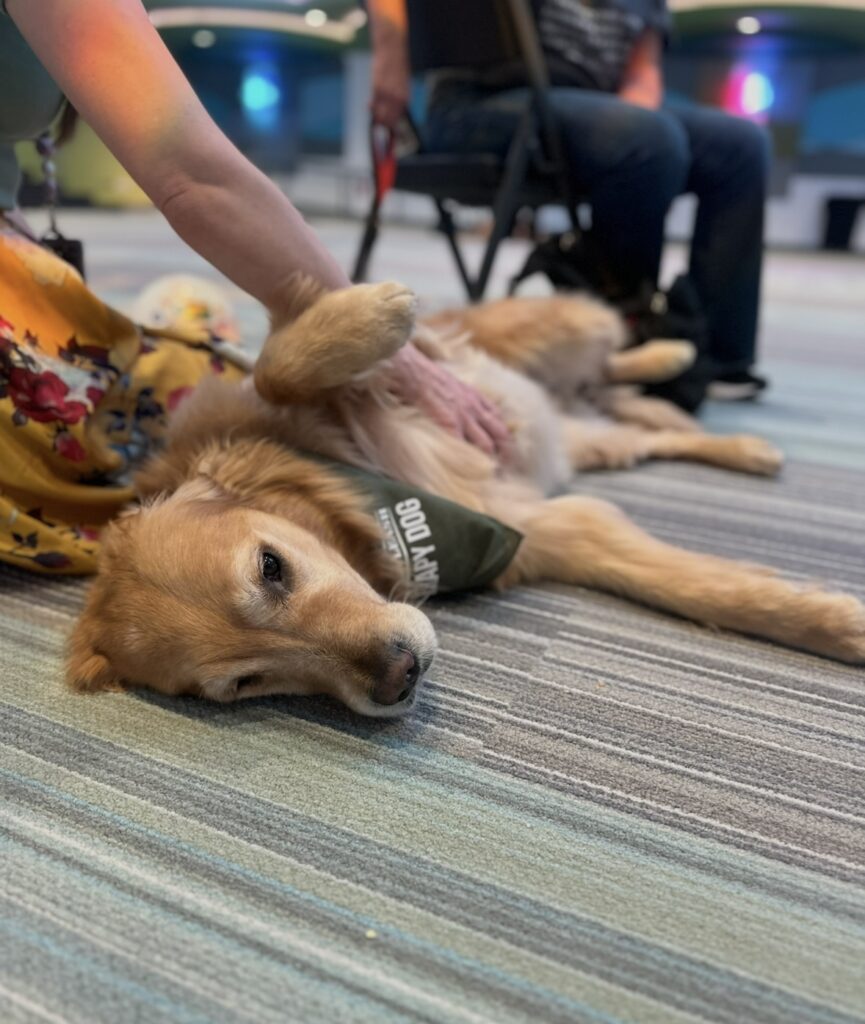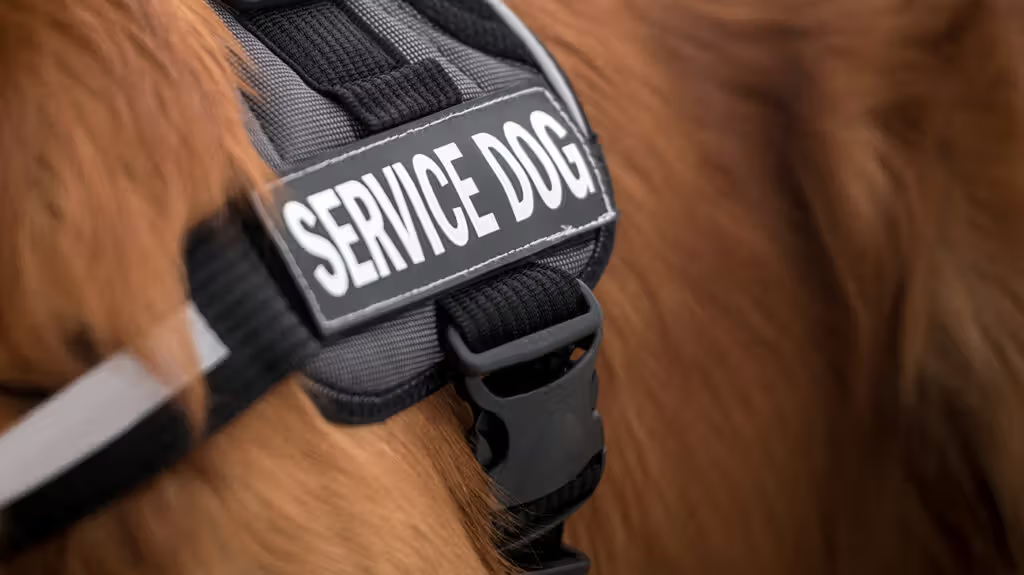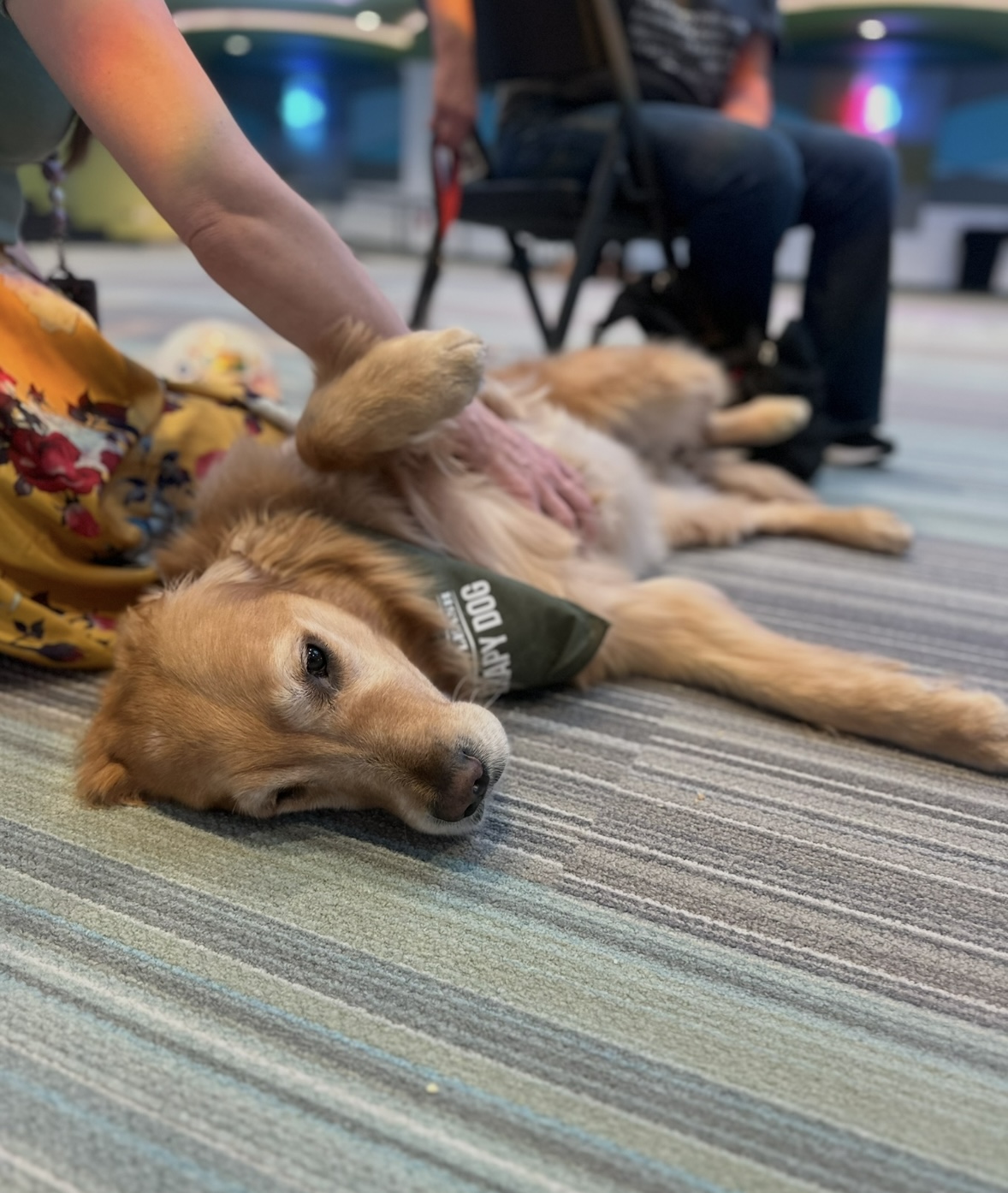Dog lovers already know that dogs make life better every day, with their loyalty, companionship, and endless affection. But did you know that some dogs have jobs that go far beyond just being a beloved pet? While many dogs serve as unofficial employees at home (think of the Delivery Alert System, Walk Reminder, or Chief Snuggle Officer), there are dogs who take on professional roles, offering their talents and skills in service to their communities. From helping those in need to saving lives, these working dogs are truly extraordinary!
Therapy Dogs: Offering Comfort in Times of Need

Therapy dogs are perhaps the most heartwarming examples of dogs with jobs. These special dogs are trained to provide emotional support, comfort, and companionship to people in hospitals, nursing homes, schools, and other environments. Unlike service dogs (who assist individuals with disabilities), therapy dogs work with groups of people, often visiting places where emotional healing is necessary. Therapy dogs have been shown to reduce stress, lower anxiety levels, and even boost morale in stressful environments.
Hospitals and nursing homes often welcome these dogs, as their presence can help patients feel more relaxed, reduce feelings of loneliness, and provide comfort in difficult times. Some therapy dogs even visit schools to help children read aloud or provide support for students dealing with bullying or anxiety.



Service Dogs: Helping People with Disabilities Live Independently

While therapy dogs offer emotional support, service dogs are specifically trained to help people with physical, mental, or emotional disabilities. Service dogs can be trained to perform a wide range of tasks, from guiding the visually impaired to alerting a deaf person to important sounds. They can even assist individuals with conditions like epilepsy, diabetes, or PTSD by providing crucial support during medical episodes or helping with daily tasks.
A service dog’s job can include retrieving objects, opening doors, turning lights on and off, or alerting their handler to an impending medical issue. These dogs are often considered life-saving companions, and their bond with their human partners is one of deep trust and reliance.
Detection Dogs: The Unsung Heroes in Law Enforcement
Detection dogs, often used by law enforcement agencies, have incredibly important jobs. These highly trained dogs are used to sniff out illegal substances, explosives, or even criminals in hiding. Whether it’s detecting drugs in airports or identifying explosives in high-security areas, detection dogs use their powerful sense of smell to provide critical assistance.
Some detection dogs specialize in searching for specific substances, such as narcotics or human remains, while others are trained to identify explosives. Their keen sense of smell allows them to do the job far more effectively than any human could, making them indispensable members of law enforcement teams
Search and Rescue Dogs: Heroes in Times of Crisis
Search and rescue (SAR) dogs are true heroes. These dogs are trained to locate missing persons in disaster zones, wilderness areas, or in situations involving accidents, such as avalanches or collapsed buildings.
These dogs are incredible trackers, using their powerful sense of smell to detect human scent, even when it is faint or difficult to locate.SAR dogs are often deployed in natural disaster zones, such as after earthquakes, floods, or hurricanes, to find survivors trapped in the rubble.
Their ability to work in harsh conditions, often with limited visibility or in treacherous terrain, makes them indispensable to rescue teams. These dogs typically work alongside first responders, providing vital assistance during times of crisis.

Military Dogs: Serving in Combat and Security
Military dogs have been used for centuries to help soldiers in combat. These dogs are trained for a variety of roles, including detecting explosives, locating enemies, and providing protection to military personnel. Military dogs often work in dangerous environments, risking their lives alongside human soldiers to ensure the safety of their team.
In addition to their role in combat zones, military dogs are also used in security and protection, guarding military bases and assisting in the detection of contraband. Many military dogs receive special training and can perform tasks that are critical to national security.
Dogs Truly Are Man’s Best Friend
Whether they’re providing therapy to those in need, saving lives in search and rescue missions, or helping maintain safety and security in law enforcement and military operations, dogs with jobs are true heroes. These incredible animals have an uncanny ability to assist humans in ways that are both practical and life-saving.
So, the next time you’re snuggling with your dog on the couch, remember: some dogs are out there doing real, impactful work—whether they’re chasing down a criminal or comforting someone in need. These working dogs make the world a better place, one wag of the tail at a time!
Dog lovers already know that dogs make life better every day, with their loyalty, companionship, and endless affection. But did you know that some dogs have jobs that go far beyond just being a beloved pet? While many dogs serve as unofficial employees at home (think of the Delivery Alert System, Walk Reminder, or Chief Snuggle Officer), there are dogs who take on professional roles, offering their talents and skills in service to their communities. From helping those in need to saving lives, these working dogs are truly extraordinary!
Therapy Dogs: Offering Comfort in Times of Need

Therapy dogs are perhaps the most heartwarming examples of dogs with jobs. These special dogs are trained to provide emotional support, comfort, and companionship to people in hospitals, nursing homes, schools, and other environments. Unlike service dogs (who assist individuals with disabilities), therapy dogs work with groups of people, often visiting places where emotional healing is necessary. Therapy dogs have been shown to reduce stress, lower anxiety levels, and even boost morale in stressful environments.
Hospitals and nursing homes often welcome these dogs, as their presence can help patients feel more relaxed, reduce feelings of loneliness, and provide comfort in difficult times. Some therapy dogs even visit schools to help children read aloud or provide support for students dealing with bullying or anxiety.



Service Dogs: Helping People with Disabilities Live Independently

While therapy dogs offer emotional support, service dogs are specifically trained to help people with physical, mental, or emotional disabilities. Service dogs can be trained to perform a wide range of tasks, from guiding the visually impaired to alerting a deaf person to important sounds. They can even assist individuals with conditions like epilepsy, diabetes, or PTSD by providing crucial support during medical episodes or helping with daily tasks.
A service dog’s job can include retrieving objects, opening doors, turning lights on and off, or alerting their handler to an impending medical issue. These dogs are often considered life-saving companions, and their bond with their human partners is one of deep trust and reliance.
Detection Dogs: The Unsung Heroes in Law Enforcement
Detection dogs, often used by law enforcement agencies, have incredibly important jobs. These highly trained dogs are used to sniff out illegal substances, explosives, or even criminals in hiding. Whether it’s detecting drugs in airports or identifying explosives in high-security areas, detection dogs use their powerful sense of smell to provide critical assistance.
Some detection dogs specialize in searching for specific substances, such as narcotics or human remains, while others are trained to identify explosives. Their keen sense of smell allows them to do the job far more effectively than any human could, making them indispensable members of law enforcement teams
Search and Rescue Dogs: Heroes in Times of Crisis
Search and rescue (SAR) dogs are true heroes. These dogs are trained to locate missing persons in disaster zones, wilderness areas, or in situations involving accidents, such as avalanches or collapsed buildings.
These dogs are incredible trackers, using their powerful sense of smell to detect human scent, even when it is faint or difficult to locate.SAR dogs are often deployed in natural disaster zones, such as after earthquakes, floods, or hurricanes, to find survivors trapped in the rubble.
Their ability to work in harsh conditions, often with limited visibility or in treacherous terrain, makes them indispensable to rescue teams. These dogs typically work alongside first responders, providing vital assistance during times of crisis.

Military Dogs: Serving in Combat and Security
Military dogs have been used for centuries to help soldiers in combat. These dogs are trained for a variety of roles, including detecting explosives, locating enemies, and providing protection to military personnel. Military dogs often work in dangerous environments, risking their lives alongside human soldiers to ensure the safety of their team.
In addition to their role in combat zones, military dogs are also used in security and protection, guarding military bases and assisting in the detection of contraband. Many military dogs receive special training and can perform tasks that are critical to national security.
Dogs Truly Are Man’s Best Friend
Whether they’re providing therapy to those in need, saving lives in search and rescue missions, or helping maintain safety and security in law enforcement and military operations, dogs with jobs are true heroes. These incredible animals have an uncanny ability to assist humans in ways that are both practical and life-saving.
So, the next time you’re snuggling with your dog on the couch, remember: some dogs are out there doing real, impactful work—whether they’re chasing down a criminal or comforting someone in need. These working dogs make the world a better place, one wag of the tail at a time!

Comments